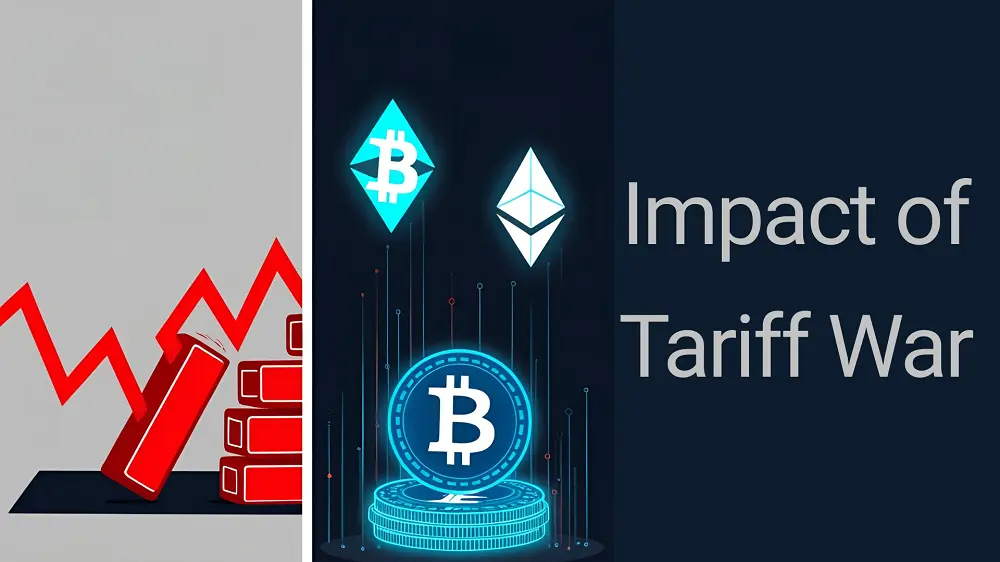International Markets | April 2025 — The ongoing tariff war 2.0 between the US and China has shaken the global business and financial environment. But while traditional markets are in an environment of uncertainty and decline, a new question has arisen — can cryptocurrency become a relief in this economic crisis?
What is Tariff War 2.0?
The US has recently imposed new and strict tariffs on China, especially on the technology and manufacturing sectors. Its aim is to limit China’s technological power and protect American industry. In response, China is also preparing retaliatory tariffs.
This tension has affected the stock market, supply chain, trading sector and especially dollar-denominated payment channels. Investors are nervous and now they are looking for alternatives.
Cryptocurrency: No longer an option, becoming a necessity?
In this development, cryptocurrencies — especially Bitcoin, Ethereum and Stablecoins — have once again come into the limelight.
- Borderless transactions: As many countries seek to reduce their reliance on SWIFT and traditional banking channels amid trade wars, crypto has become a medium that is not under the control of any one country.
- Surge in demand for stablecoins: Stablecoins such as USDT and USDC are now emerging as a safe currency in international trading. With their help, traders can pay and receive in virtual currency equivalent to the dollar.
- Crypto as a hedging tool: As pressure on stocks and fiat currencies increases, investors are looking at crypto as a hedging instrument — a means of protecting against risk.
Example: Chinese traders’ stance
Some media reports and on-chain data suggest that Chinese traders, who are losing access to the US dollar, are now showing an inclination towards crypto wallets and decentralized exchanges (DEX).
Although crypto is banned in China, transactions are still booming on OTC (Over-the-Counter) markets and peer-to-peer platforms.
What does the policy of the US and other countries say?
The US has a dual attitude towards crypto. On one hand the SEC and other agencies are demanding regulation, while on the other hand many political leaders consider crypto as the financial system of the future.
The tariff war has proved that a decentralized financial system is necessary at this time, especially when geopolitical tensions are increasing.
Can blockchain technology be leveraged?
Blockchain technology can prove to be very useful in making Supply Chain Transparency and Cross-Border Settlement easy and reliable in the era of trade war.
For example:
- Companies like IBM and Maersk are already using blockchain for global trade documentation.
- If governments adopt it, reliable and cheap trade agreements can be made through Smart Contracts.
Is crypto really a “relief” or just another risk?* This question remains. Experts agree that:
- Crypto certainly has opportunities, but also high risks.
- If proper regulation and transparency are introduced, it can become an alternative global payment system.
- But this technology is still far from widespread adoption, especially due to the lack of trust and control among governments.
Conclusion:
In this new era of tariff wars, cryptocurrency is moving towards becoming not just a means of investment but an economic self-reliance and a new model of global trade.
If global powers are ready to adopt it, crypto can become not just a trend but a transformation of trading in the coming years.
If you also want to understand algorithmic trading in depth and learn to create your own trading strategies using Python, read “Algorithmic Trading Strategies with Python“. In it you will find practical coding examples, backtesting methods, and real world strategies used in the industry in detail.
Buy the book on Amazon — https://www.amazon.com/dp/B0F3S8FQ7C

